Lab of Michael Wrzaczek will shed light on the communication of plant cells
How do plant cells communicate, sense information from the environment and coordinate between different parts of the plant? How is this communication orchestrated? These are some of questions which will be answered by newly established laboratory of “Plant Molecular Signaling” led by Michael Wrzaczek, who joined the team of the Institute of Plant Molecular Biology - Biology Centre CAS at the beginning of 2021.
In order for plants to survive and thrive, grow and develop optimally, plant cells have to communicate with other cells and also sense information from the environment (for example presence of harmful microbes, temperature, nutrients, light). In fact, this is similar for most if not all multicellular organisms. There are many different ways to ensure cellular signaling in particular for plants, where cells are separated not only by plasma membrane but also by a rigid cell wall. Therefore, it is important for signaling, how the cells are connected. "Generally speaking, plants use a large number of receptors, localized in the plasma membrane of cells, which perceive signals from other cells or from the environment. Those receptors then relay the signals to other components inside the cell to orchestrate proper cellular responses," explains Michael Wrzaczek, the head of newly established laboratory of Plant Molecular Signaling.
But there are also other types of communication, for example plasmodesmata: tiny channels which interconnect plant cells into one huge network. Interestingly, communication via receptors and plasmodesmata needs to be tightly integrated. Uncovering some of mechanisms which integrate these different communication strategies will be one of the first projects in the laboratory of Plant Molecular Signaling and dr. Wrzaczek and his colleagues. They noticed that under certain conditions some receptors can control opening of those intercellular channels. “Understanding how different communication channels are integrated will allow us to reveal of how plants regulate their growth in a constantly changing environment, where they face numerous challenges they just cannot run away from,” adds Michael Wrzaczek.
The laboratory of “Plant Molecular Signaling” is also looking at other signaling mechanisms, for example how plants employ reactive compounds as messengers and how those compounds can trigger responses while avoiding unspecific responses. Together with collaborators the team is asking how such messengers are integrated with receptor and plasmodesmal signaling.
Doc. Michael Alois Wrzaczek, PhD. obtained his PhD at the University of Vienna (Austria). He then moved to the University of Helsinki (Finland), where he established his own group investigating signal transduction in plants on the cellular and molecular level. At the Institute of Plant Molecular Biology, he now continues his research as the leader of the department of Plant Molecular Signaling.
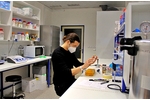
Plant Molecular Signaling...
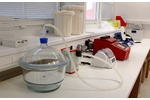
Plant Molecular Signaling...
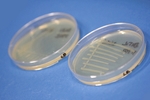
Bacteria
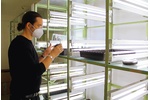
Growing plant chamber
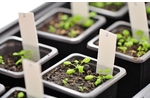
Experimental plants












